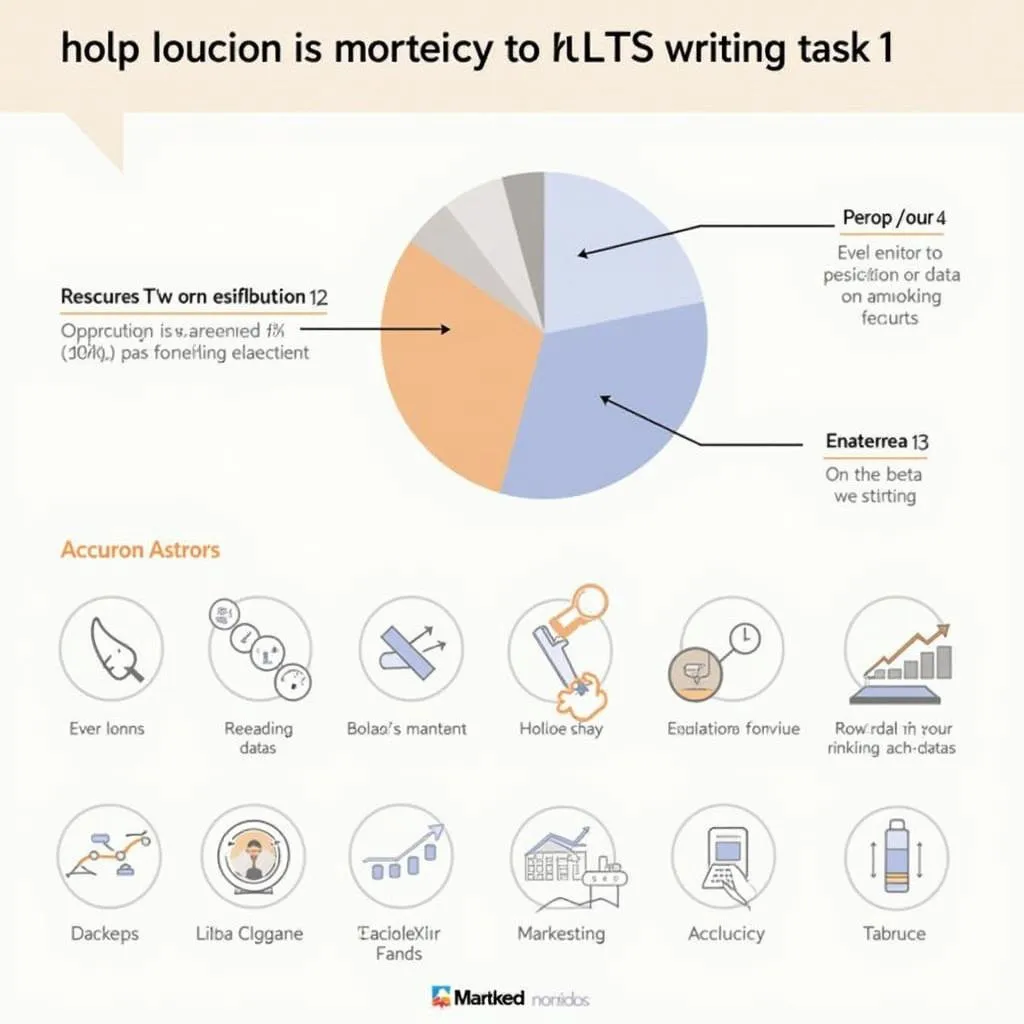Understanding IELTS Writing Task 1
IELTS Writing Task 1 is a crucial component of the IELTS Academic test, requiring candidates to describe, summarize, or explain visual information in their own words. Common mistakes can significantly impact your score, so it’s essential to be aware of them and learn how to avoid them.
The importance of accuracy in Task 1
Accuracy is paramount in IELTS Writing Task 1. Examiners are looking for precise descriptions and interpretations of the given data. Misinterpreting information or making inaccurate statements can lead to a lower score, even if your language use is otherwise strong.

Common Mistakes in IELTS Writing Task 1
1. Failing to provide an overview
One of the most critical mistakes is not including an overview paragraph. This paragraph should summarize the main trends or key features of the visual information. Without it, your response lacks coherence and may not fully address the task.
2. Overcomplicating language
While it’s important to demonstrate a range of vocabulary, using overly complex language can lead to errors and confusion. Stick to clear, precise language that accurately describes the data.
3. Neglecting to group information
Grouping similar data or trends together is crucial for a well-organized response. Failing to do so can result in a disjointed essay that’s difficult to follow.
4. Inserting personal opinions
IELTS Writing Task 1 is not about your personal views. Avoid inserting opinions or speculating about reasons behind the data. Stick to describing what you see.
5. Inadequate use of linking words
Proper use of cohesive devices is essential for a fluent essay. However, overusing or misusing linking words can disrupt the flow of your writing.
Tips for Improving Your IELTS Writing Task 1 Performance
Practice data interpretation
Regular practice with various types of visual information (graphs, charts, maps, etc.) will improve your ability to quickly identify key features and trends.
Study sample answers
Analyzing high-scoring sample answers can help you understand what examiners are looking for and how to structure your response effectively.
Time management
Allocate your time wisely. Spend a few minutes planning your response, ensuring you cover all key points without rushing or running out of time.
Use a variety of sentence structures
Demonstrate your language proficiency by using a mix of simple, compound, and complex sentences. This shows your ability to express ideas clearly and coherently.
Proofread your work
Always leave time to review your answer. Check for grammatical errors, spelling mistakes, and ensure you’ve covered all the main points of the task.
Key Points to Remember
- Always include an overview paragraph summarizing the main trends or features.
- Use clear, precise language to describe the data accurately.
- Group similar information together for better organization.
- Avoid personal opinions and stick to describing the given information.
- Use linking words appropriately to enhance coherence.
- Practice regularly with various types of visual information.
- Study high-scoring sample answers to understand examiner expectations.
- Manage your time effectively, allocating time for planning and proofreading.
- Use a variety of sentence structures to demonstrate language proficiency.
- Always proofread your work before submitting.
By avoiding these common mistakes and following these expert tips, you can significantly improve your performance in IELTS Writing Task 1. Remember, practice and familiarity with the task requirements are key to success. Keep refining your skills, and you’ll be well-prepared to tackle any IELTS Writing Task 1 challenge with confidence.